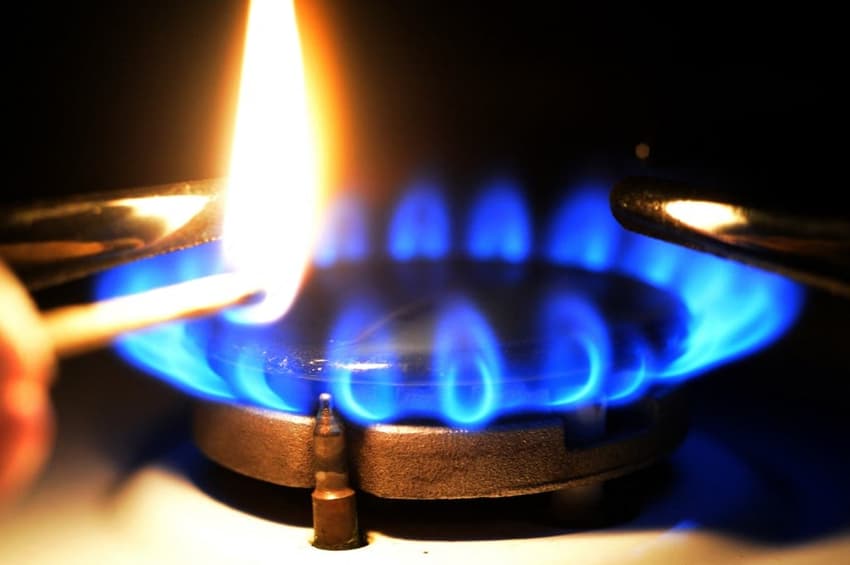What can we expect from Macron's 'Energy Defence Council'?

President Emmanuel Macron will host an 'Energy Defence Council' - intended to respond to possible energy shortages in France - for the first time on Friday. Here is what we can expect.
French President Emmanuel Macron has created an 'Energy Defence Council' to discuss the energy supply in France in the coming months, after warnings of possible winter shortages increased in recent days.
The group will meet for the first time on Friday, September 2nd at the Élysée Palace.
The President's office stated that the objective is to "prepare for all eventualities this autumn and winter."
The body will function as a decision-making tool capable of responding quickly to the crisis.
Prior to Covid-19, these councils were limited to the Defence and National Security Councils, with meetings held in restricted format around the head of state and usually devoted to military topics.
However, during the pandemic, Macron created a "Public Health Defence Council" responsible for "crisis public health decisions" during the pandemic.
The group met weekly and was made up of key ministers, drawing on recommendations from experts including the Scientific Council.
Similarly, the Energy Defence Council will allow Macron's government to make key decisions related to potential energy shortages in France.
Franceinfo reports that the Council is expected to take stock of and - if necessary - make decisions regarding the production capacity of electricity, particularly regarding the situation of France's power giant, EDF.
BFMTV's head of the political service, Philippe Corbé, predicted that the body will "have to focus on companies that, within a month, will have to define an energy-saving plan. If within a month these sobriety plans are not up to the situation, then the government will organise reductions in energy consumption."
In a speech to business leaders on Monday, prime minister Elisabeth Borne said that each business sector would be required to have a plan by October 1st, detailing how it will cut its energy consumption.
Concern regarding energy supplies for the winter has been mounting in recent days. On Tuesday, French gas supplier Engie announced that Russian energy giant Gazprom was slashing its natural gas deliveries "due to a disagreement between both sides over the execution of contracts."
The group added that the gas supplies from Russia had already been drastically reduced in recent months - representing just four percent of its total energy supplies at the end of July.
"Engie had already secured the necessary volumes to guarantee supplies for its clients and for its own needs," the group said.
France has been rapidly filling its gas storage facilities, which are now 90 percent full, and has negotiated extra supplies from Norway.
The country relies on nuclear for most of its electricity, but gas accounts for about 20 percent of its total energy consumption, mostly for residential heating and cooking as well as industrial purposes, official figures show.
Comments
See Also
French President Emmanuel Macron has created an 'Energy Defence Council' to discuss the energy supply in France in the coming months, after warnings of possible winter shortages increased in recent days.
The group will meet for the first time on Friday, September 2nd at the Élysée Palace.
The President's office stated that the objective is to "prepare for all eventualities this autumn and winter."
The body will function as a decision-making tool capable of responding quickly to the crisis.
Prior to Covid-19, these councils were limited to the Defence and National Security Councils, with meetings held in restricted format around the head of state and usually devoted to military topics.
However, during the pandemic, Macron created a "Public Health Defence Council" responsible for "crisis public health decisions" during the pandemic.
The group met weekly and was made up of key ministers, drawing on recommendations from experts including the Scientific Council.
Similarly, the Energy Defence Council will allow Macron's government to make key decisions related to potential energy shortages in France.
Franceinfo reports that the Council is expected to take stock of and - if necessary - make decisions regarding the production capacity of electricity, particularly regarding the situation of France's power giant, EDF.
BFMTV's head of the political service, Philippe Corbé, predicted that the body will "have to focus on companies that, within a month, will have to define an energy-saving plan. If within a month these sobriety plans are not up to the situation, then the government will organise reductions in energy consumption."
In a speech to business leaders on Monday, prime minister Elisabeth Borne said that each business sector would be required to have a plan by October 1st, detailing how it will cut its energy consumption.
Concern regarding energy supplies for the winter has been mounting in recent days. On Tuesday, French gas supplier Engie announced that Russian energy giant Gazprom was slashing its natural gas deliveries "due to a disagreement between both sides over the execution of contracts."
The group added that the gas supplies from Russia had already been drastically reduced in recent months - representing just four percent of its total energy supplies at the end of July.
"Engie had already secured the necessary volumes to guarantee supplies for its clients and for its own needs," the group said.
France has been rapidly filling its gas storage facilities, which are now 90 percent full, and has negotiated extra supplies from Norway.
The country relies on nuclear for most of its electricity, but gas accounts for about 20 percent of its total energy consumption, mostly for residential heating and cooking as well as industrial purposes, official figures show.
Join the conversation in our comments section below. Share your own views and experience and if you have a question or suggestion for our journalists then email us at [email protected].
Please keep comments civil, constructive and on topic – and make sure to read our terms of use before getting involved.
Please log in here to leave a comment.